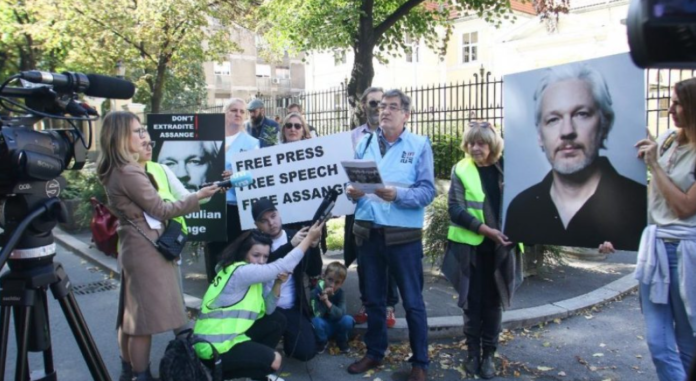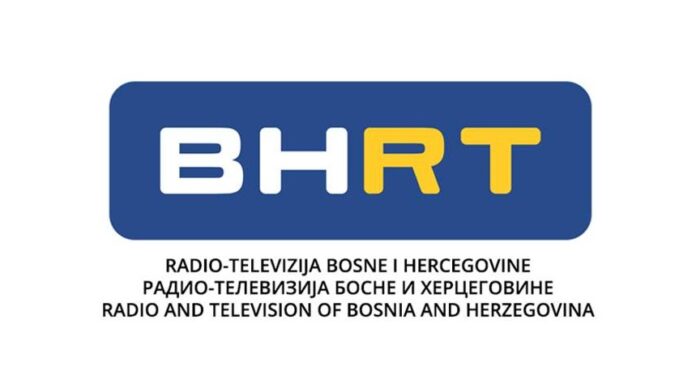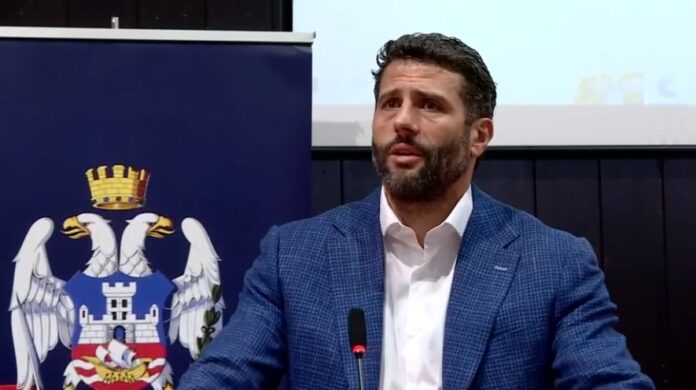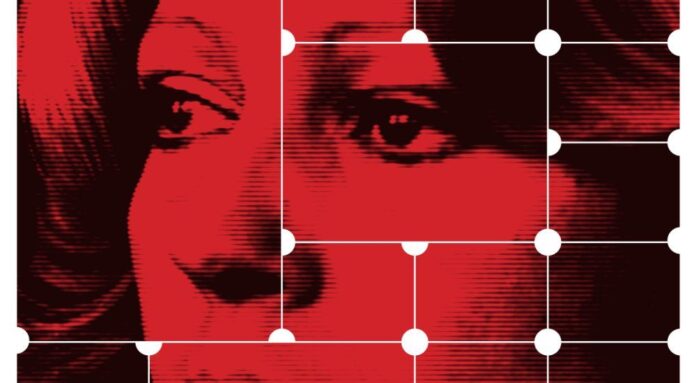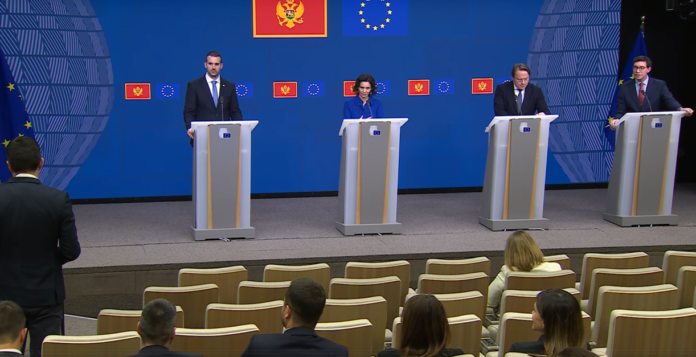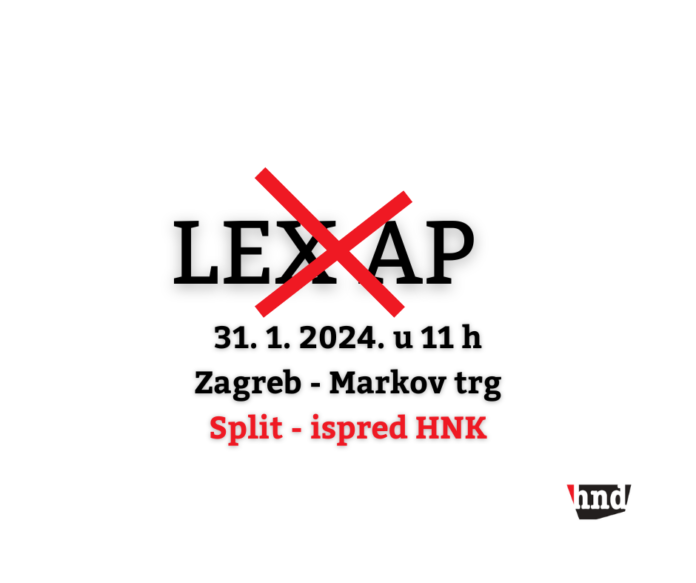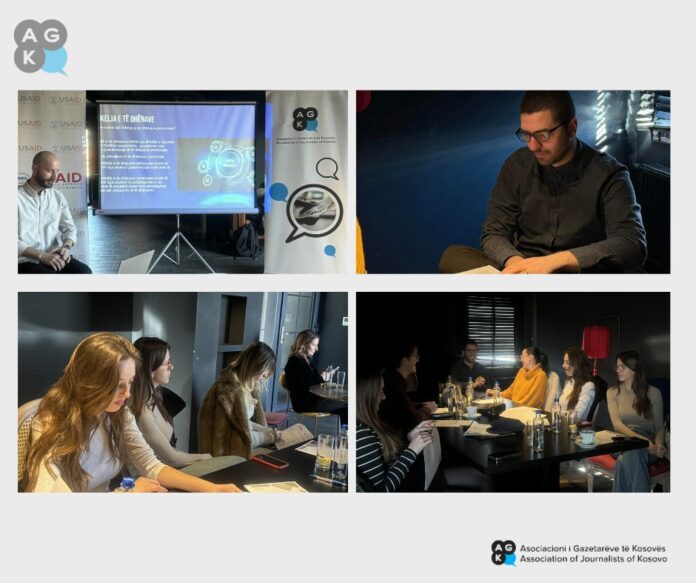Julian Assange, the most highly acclaimed journalist of our times, is nearing five years of imprisonment and torture in Belmarsh prison for publishing evidence of US government wrongdoing. Julian Assange’s case is at a critical juncture, as his final appeal against extradition to the United States will be on February 20th – 21st, where he faces 175 years.
If extradited to the US, he faces prolonged solitary confinement in the Eastern District of Virginia, where he will stand trial for “Espionage” for publishing information in the public interest under legislation that forbids a public interest defence. The jury pool in this area is composed overwhelmingly of individuals associated with the CIA, NSA, and other entities associated with the national security sector. The only fair outcome for a case that criminalises journalism is for it not to be brought in the first place. The effect of Julian Assange’s imprisonment is to chill press freedom around the world, and to encourage harassment, politically motivated cases and imprisonment of reporters and dissidents around the world.
Julian Assange’s campaign against extradition is supported by every human rights organisation of note including Amnesty international, Human rights watch, the ACLU, Reporters without borders, the NUJ, the IFJ and Pen International.
The exhibition, titled ‘The Assange Case: Awards and Rewards,’ is scheduled to take place during the plenary session at the European Parliament in Strasbourg from the 6th to the 8th of February. The exhibit will showcase the numerous awards and honours Julian Assange has received, including Australia’s Walkley Foundation Award for Most Outstanding Contribution to Journalism and the German Konrad Wolf Prize.
The primary goal of this collection is to underscore the immense global significance and recognition of Julian Assange’s work. Stella Assange, Dominique Pradalie, President of the International Federation Of Journalists, and Günter Wallraff, the legendary German writer and journalist, as well as a lawyer for Mr Assange will be in attendance at the formal inauguration and the press conference on 6 February, 6.30pm at the Winston Churchill building Canal Area.
For any information about the press conference contact Davide D’Antoni: +32 496 28 16 97.
The Free Assange campaign wholeheartedly welcomes the exhibition in Strasbourg to highlight the importance of Julian Assange’s case for the future of journalism as his case reaches its final stage in Britain. None of us are free, until Julian Assange is free.
Awards for journalism:
- Almudena Grandes Special Award for defending the right to information 2022
- Amnesty International New Media Award 2009
- Anticor Ethics Prize 2022
- Audálio Dantas trophy for Indignation, Courage and Hope 2022
- Austrian Journalist Association’s Dr. Karl Renner Solidarity Prize 2021
- Big Brother Award Hero of Privacy 2012
- Blanquerna Award for Best Communicator 2011
- Brazillian Press Association Human Rights Award 2013
- Danny Schechter Global Vision Award for Journalism & Activism 2019
- European Parliament Sakharov Prize (Finalist) 2022
- Free Dacia Award 2011
- Gary Webb Freedom of the Press Award 2020
- Gavin MacFadyen Award 2019
- Gavin MacFadyen Special Award 2023
- Global Exchange Human Rights People’s Choice Award 2013
- GUE/NGL Daphne Galizia Prize for Journalists, Whistleblowers And Defenders of the Right to Information Europe 2019
- Günter Wallraff Prize for Investigative Journalism and Moral Courage 2022
- International Piero Passetti Journalism Prize of the National Union of Italian Journalists 2011
- Jose Couso Press Freedom Award 2011
- Journalists Club of Mexico’s International Journalism Award 2019
- Kazakhstan Union of Journalists Top Prize 2014
- Konrad Wolf Prize 2023
- Le Monde Person of the Year 2010
- Martha Gellhorn Prize for Journalism 2011
- PEN Norway Ossietzky Prize 2023
- Prix Ars Electronica Award of Distinction 2009
- Sacco-Vanzetti Memorial Award 2021
- Sam Adams Award for Integrity 2010
- Stuttgart Peace Prize 2020
- Sydney Peace Foundation Gold Medal 2011
- The Dignity Commission’s Dignity Award 2019
- The Economist New Media Award 2008
- The Press Project: Person of the Year 2019
- The Walkley Foundation Award for Most Outstanding Contribution to Journalism 2011
- Time Person of the Year, People’s Choice 2010
- Trinity College Dublin Historical Society Gold Medal for Outstanding contribution to public discourse 2023
- Voltaire Award for Free Speech 2011
- Weizenbaum Prize for Peace and Social Responsibility 2022
- Yoko Ono Lennon Courage Award for the Arts 2013
Julian Assange recently became an honorary member of the Independent Journalists Association of Serbia.


